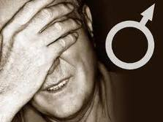 Our recent blog on male menopause has generated a number of questions, especially on the side effects of hormone treatments. I went back to Dr. Robert Brannigan, a Northwestern University urologist, who was quoted in our previous blog on the topic for guidance and he shared an article that was jointly prepared by the Practice Committee of the American Society for Reproductive Medicine and the Society for Male Reproduction and Urology entitled, "Androgen deficiency in the aging male" (Fertility and Sterility, Vol. 90, Suppl 3, November 2008). It should be noted that although there are recommendations (see below) for androgen replacement therapy for older men, the data to support treatment protocols are based on a limited number of clinical trials. Furthermore, the long term health risks and benefits of androgen therapy in the older man are not well defined so it is important that anyone undergoing androgen therapy be carefully monitored.
Our recent blog on male menopause has generated a number of questions, especially on the side effects of hormone treatments. I went back to Dr. Robert Brannigan, a Northwestern University urologist, who was quoted in our previous blog on the topic for guidance and he shared an article that was jointly prepared by the Practice Committee of the American Society for Reproductive Medicine and the Society for Male Reproduction and Urology entitled, "Androgen deficiency in the aging male" (Fertility and Sterility, Vol. 90, Suppl 3, November 2008). It should be noted that although there are recommendations (see below) for androgen replacement therapy for older men, the data to support treatment protocols are based on a limited number of clinical trials. Furthermore, the long term health risks and benefits of androgen therapy in the older man are not well defined so it is important that anyone undergoing androgen therapy be carefully monitored.
All commercial androgen formulation currently available in the US are preparations of testosterone, an androgen that can be converted to estradiol. The potential risks of androgen therapy in older men include fluid retention, gynecomastia, excessively elevated red blood cell mass, exacerbation of sleep apnea, benign or malignant prostate disease, and an increase in risk for cardiovascular disease (CVD).
The Summary and Recommendations of the report state:
- Androgen deficiency in the aging male may be associated with changes in mood, body composition, stamina, energy, and decreased sexual and cognitive function as well as loss of bone mineral density. Such signs and symptoms may be relieved or eliminated with testosterone replacement therapy.
- Serum testosterone should be evaluated only in men with signs or symptoms of androgen deficiency.
- Androgen therapy should be considered for men who have symptoms of androgen deficiency and a low serum total testosterone concentration (<200 ng/dL).
- Free or bioavailable testosterone levels or the free testosterone index should be evaluated in men who have symptoms of androgen deficiency and a borderline total serum testosterone concentration between 200 ng/dL and 400 ng/dL.
- During androgen therapy, serum testosterone, PSA (prostate specific antigen), and hematocrit (level of red blood cells) should be monitored, and periodic digital rectal exam is recommended.
- Limited data regarding the benefits and risks of testosterone replacement therapy do not permit specific treatment recommendations at this time and further research studies are needed to better define the effects of androgen replacement therapy in aging men.
Men considering androgen replacement therapy may want to consider participation in a clinical trial so that we can increase our knowledge in this area.

Comments